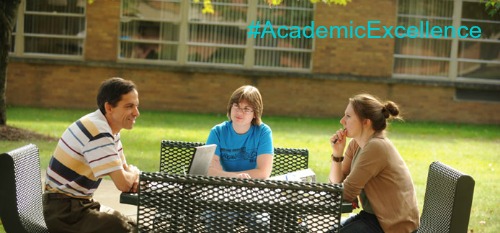Faculty member and student collaborate on empathy study
How does empathy influence child caregiving? How do more empathetic mothers differ from their less empathetic counterparts in collaborative problem-solving with their young children?
 Emily Jackson '14 (PsyD student at Indiana University of Pennsylvania) and Eb de Oliveira, Ph.D., Professor of Psychology, address these questions in an empirical report recently accepted for publication in the British scientific journal Infant and Child Development.
Emily Jackson '14 (PsyD student at Indiana University of Pennsylvania) and Eb de Oliveira, Ph.D., Professor of Psychology, address these questions in an empirical report recently accepted for publication in the British scientific journal Infant and Child Development.
"Much work goes into a study like this, from video-recording of mother-child interactions to observational data coding, statistical analyses and interpretation, and report writing and editing," said de Oliveira. "I'm so grateful for the work that co-author Emily Jackson and several of her peers (acknowledged in the manuscript) put into this study. We all learned a great deal from each other through this team effort."
Using a sample of mothers and children from the Weaver Child Development Center and the Canton Jewish Community Center preschool programs, they found no direct relationship between empathy and collaboration in problem-solving. However, mothers who self-reported higher empathy were observed to provide more cognitive and physical support as the experimentally-manipulated task difficulty increased, whereas mothers who reported lower levels of empathy did not modulate their assistance to the children based on task difficulty. In other words, the data suggest that maternal empathetic support to children is neither excessive nor inadequate because it is regulated by objective problem difficulty.
The study also examined the role of children's motor skills (as rated by teachers) and children's age, both of which seemed to correlate in predicted directions with different types of observed collaboration.
In a separate book chapter soon to be published in Brazil, de Oliveira explores several potential applications of caregiver empathy in the context of daycare centers in that country, including collaborative problem-solving, child social-skill development, emergency situations, and staff-parent relations.

